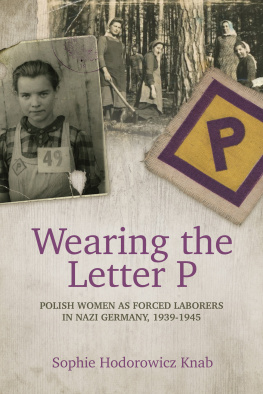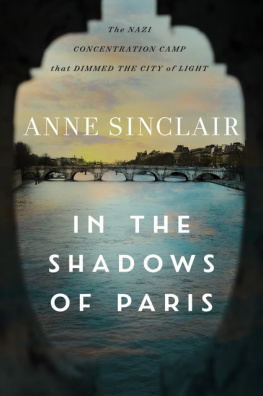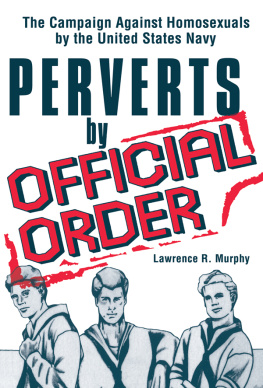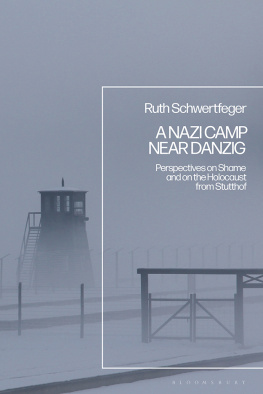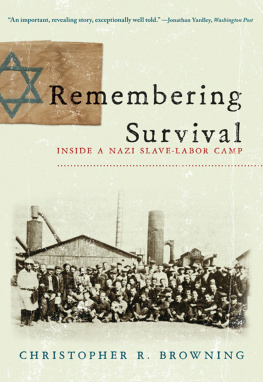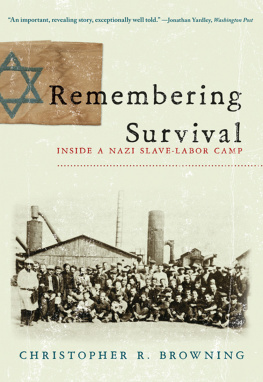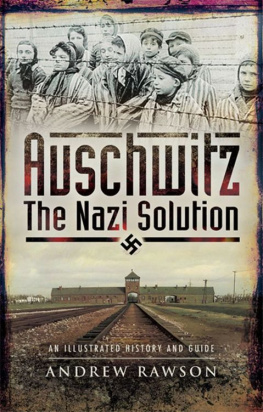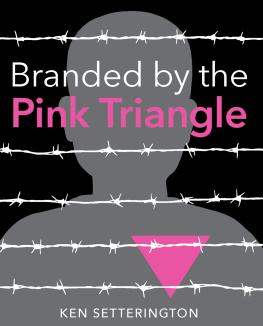I fled Frankfurt am Main on February 27, 1933, the day the Reichstag went up in flames. I was fortunate. My father, however, a physician, a veteran, a Socialist, and a Jew, had been arrested several weeks earlier. Because a few of his patients, though nominally members of the Nazi Party, intervened in his behalfthis was possible during the early years of the Third Reichhe came home after only one month of imprisonment. He insisted I leave Germany as quickly as possible for Basel, Switzerland, and enroll at the university there. After encountering many obstacles, I succeeded in obtaining a passport, an object that had suddenly acquired enormous value. I gathered a few belongings and some luggage, and rushed to the Frankfurt railroad station to take the earliest train to Switzerland.
Only years later did I realize how lucky I had been. Although the anti-Jewish and the anti-gay laws became officially part of the Nazi onslaught of terror in 1934-35, the crusade against various minorities had really begun long before. Brown-shirted gangs of trigger- and hammer-happy youths, in an outbreak of spontaneous national outrage, had vandalized Jewish stores or thrashed the patrons of the few timid gay bars in Frankfurt. By June 1933, a few Swiss newspapers had reported with near incredulity that Hitlers threats in Mein Kampf to expunge his enemies had not been empty posturingthat Jews, liberals, Social Democrats, Catholics, and labor leaders had been arrested or murdered; that, in short, a revolution was rocking Germany to its already shaky foundations. The Swiss never alluded to the Nazis anti-gay crusadein part because this movement began in full only in June 1935, but also because in the 1930s no self-respecting publication would dare to discuss such a delicate subject. To what length the Nazi regime was prepared to carry the war against non-Aryans no Swiss newspaper could foresee. Yet another agency concerned with the public good, the Swiss Foreign Ministry in Berne, did exhibit a knack for anticipating Hitlers moves.
A few weeks after my arrival in Basel, I had gone to the university, a sixteenth-century fortress overlooking the Rhine, to register as a graduate student in history and literature. About six months later the Foreign Ministry struck, ruling that foreign students could not attend classes in Switzerland unless they had been in the country for a certain length of time and had been given a provisional permit of residence. Fortunately, because I had registered in February, I was safe.
By the time I was ready for my first class at the fortress, I had found a place to stay in the eccentric household of Gabrielle Gundermann, a very unmarried old lady, tiny and vivacious, a former coloratura soprano and telephone company employee. She insisted I call her Miss Gaby. I tried to settle down to the life of a financially insecure alien student. Like other fugitive German students I met, I had few forebodings of what was going to happen in Germany, though I harbored a profound worry. I spent some nights sleepless with anxiety. Certain events in Germany gradually made the situation clearer. The Frankfurter Zeitung, for example, one of the better liberal German dailies, not only acquired a new editorial staff, but its tone began to change markedly. Jewish names disappeared from the masthead. The paper now seemed to speak in code. In contrast, the small local liberal daily, the Basler Nationalzeitung, began to print more and more news about Germany, most of it shocking. Throughout the Nazi years the paper resisted the pressure put on it by German interests and compliant Swiss officials to change its anti-Nazi bias. Meanwhile, my father kept writing guarded letters to me. But he did not mention that one day the SS had put a uniformed guard in front of the door of every Jewish physician. This I heard about late one night on Basel radio.
I had left friends behind in Frankfurt. Ferdi Strom, an old classmate, had shared my brief tenure in one of the youth groups known as the Rovers. The leader of such a group usually expected the members, as his disciples, to be loyal if not devoted. Soon I discovered that a Rover leader had his favorites. Whether this went beyond arm-on-the-shoulder familiarity I could not tell then. In such brotherhoods a few adolescents had little affairs, misty and romantic sessions around a blazing fire in the dark of the forest. Other boys, more down-to-earth, talked openly about going with friends and enjoying it. The leaders of these groups tended to disregard the relationships blossoming around themunless they participatedjust as they paid scant attention to the ideological debates that regularly erupted while we sat and talked around the campfire. I left the Rovers, a vaguely romantic association of mostly middle-class Protestants and Catholic teenagers, and a similar Zionist brotherhood when, as an older teenager, I fell in love with the cinema. From Ferdis letters I learned what happened to the youth groups. After 1933 the Nazis forcibly dissolved all independent youth organizations, even the Catholic ones, hurled accusations of homosexual degeneracy against their leaders, and embarked on a campaign to enforce strictly heterosexual behavior.
By this time Ferdi, too, had left the Rovers. He also quit school. It was Ferdi who had explained and demonstrated the mysteries of sex to me and my friends. He was basically a street kid, tough, truculent, and wise. But he did not hold it against me that he had a menial job at a pharmacy while I went to the university. I had not kept in touch when he joined the Communist Youth League. On the night in 1933 when Hitler was inaugurated as chancellor, Ferdi phoned me very late, and his curses sounded drunk. A few weeks before my journey to Switzerland, I had gone to the pharmacy where Ferdi worked, and where I often picked up medicine for my father. I was shocked to see Ferdi wearing a brown shirt with a red, white, and black swastika armband, and I yelled at him. To Ferdi the brown uniform meant only that he could get a better job. He urged me to get away from this mess, and it was he who provided the useful channels for obtaining that indispensable passport. He never wavered. After I had settled in Basel he started sending me unsigned postcards with badly spelled messages that I could not always decipher, though mostly they concerned acquaintances who had disappeared or been taken to jail.
From the summer of 1935 on, Ferdis messages betrayed their meanings more clearly. Hans K. had gone on a long vacation, and someone nicknamed Veidt had been transferred to Berlin. I did not know then about the new anti-gay legislation that had been introduced. Soon I began bombarding my father with letters urging him to leave Germany, even if it meant abandoning his patients and his valuable library.
He did not listen to my pleas. My mother had died earlier, of cancer; my sister, a musician, had found refuge in Hollandfor a while. During my first term at Basel I had looked up distant relatives who lent support in many ways. For my part, I tutored reluctant children in German and Latin and wrote short articles on books and films (under a pseudonym) for the Basler Nationalzeitung. By this time the entire world had heard about the 1935 Nuremberg laws concerning racial purity, and about the confiscation of non-Aryan properties and the edicts that made Jews into nonpersons. Yet the impact of the state action against gays did not really hit me until much later. Had I looked through the pages of the easily available Volkischer Beobachter, I might have encountered the various announcements of the Fhrers measures to cleanse the brave new Germany of criminal sexual deviants. But neither I nor anyone I knew took the trouble to study the Vlkischer Beobachter because its headlines trumpeted a political ideology that I refused to take seriously even in 1935.


